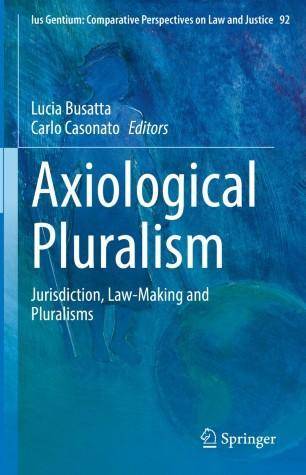Volume curato da Lucia Busatta e Carlo Casonato, sul rapporto tra diritto, dimensione valoriale e progresso medico scientifico, con i contributi di Roger Brownsword, Lucia Busatta, Carlo Casonato, Ricardo Chueca, Itziar de Lecuona, Elena Falletti Juan Alberto Lecaros, Davide Paris, Simone Penasa, Andrea Perin, Elisabetta Pulice, Carlos Maria Romeo Casabona, Marta Tomasi, Erick Valdés.
Springer, 2021, collana Ius Gentium: Comparative Perspectives on Law and Justice, pagine VI, 252.
A questo link l'indice e l'abstract dei singoli capitoli.


